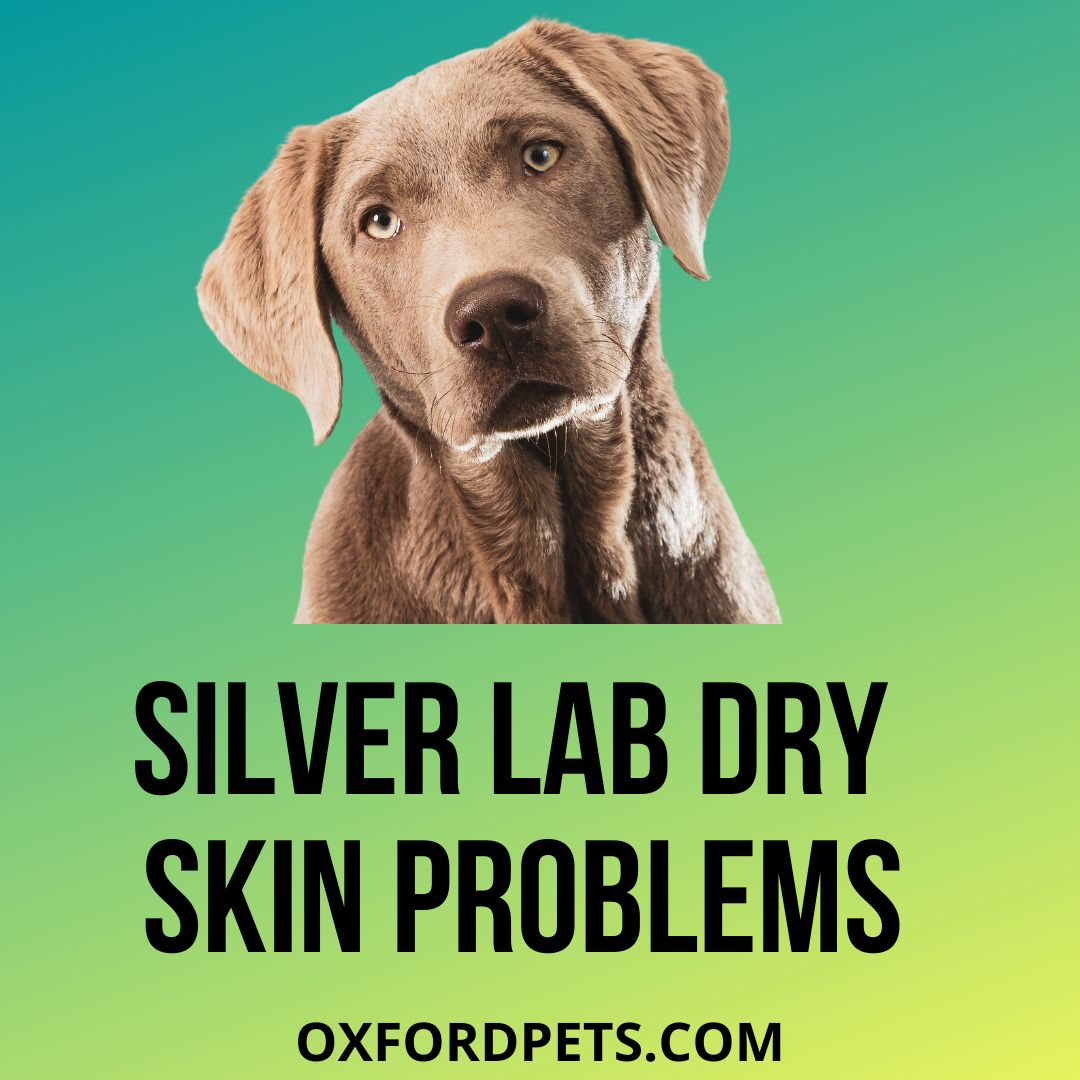Even though when Skin problems have never been big with Labradors, Silver Labs tend to suffer quite frequently with it.
Silver Labradors can suffer from a range of skin problems, and when not noticed, the conditions can get worse. Skin issues can lead to pain, irritation, itching, redness, loss of hair, and sore wounds in dogs. There’s a good chance that Silver Labrador will begin licking and biting themselves, particularly in the area infected with Skin problems.
However, no matter what Skin issues your Silver Labrador is facing, there are plenty of ways to fix them.
Here’s more about that.
Contents
Are Silver Labradors prone to Dry Skin?
Definitely, Silver Labradors are prone to Dry Skin, and there are different factors that can contribute to the same. Dry Skin can even make the shedding worse even if it is the peak of shedding season or not.
Skin dryness and flakiness in Silver Labradors can be a result of an allergy, yeast infection, environmental, diet-related, or more. Some health problems like thyroid too lead to making Labrador’s Skin dry and flaky.

Why is my Silver Labradors’ Skin dry and flaky?
Dry Skin is annoying and uncomfortable, and if you have ever faced it, you must know the irritation. Not just humans but our canine companions, too, can suffer from dry skin problems and other issues associated with that.
Dry Skin in Silver Labradors might not seem like a very big deal, but it legit is. Dry Skin can be a sign of a bigger problem and can be associated with a range of underlying health conditions. If overlooked, this skin condition can spread and become worst.
6 common reasons for your Silver Labradors’ Dry Skin
- Skin dryness often occurs due to low humidity and dryness in the air. Frequent cold weather and cold breeze too can lead to skin dryness in dogs.
- Allergic reactions to pollen, dust, dirt, grass, and mold can also lead to skin dryness. Not only environmental allergic triggers, but food allergies too can lead to dry skin and other skin problems.
- Poor Nutrition, especially the unavailability of fats in the diet, can also lead to dryness of the Skin in dogs. Essential fatty acids, including Omega-3 fatty acids, are extremely important for your Labrador’s skin and coat health.
- Parasitical infections and Yeast infections can likely cause different skin conditions, including dryness, itching, flaking, redness, and odor.
- Metabolic and Hormonal disorders like Hypothyroidism and Cushing’s disease are other popular reasons for dry and flaky Skin in Labradors.
- Stress, boredom, and anxiety, along with other behavioral issues too, can cause skin problems in dogs.
Silver Lab Dry Skin Treatment
Treating your Silver Labradors’ skin conditions like dryness and flakiness depends totally upon what triggered the same. There are potentially many causes that lead to skin dryness in dogs, and most of them can be alarming. Therefore, instead of relying ‘Only’ on home remedies, experts recommend consulting Vets as well. If skin dryness is a sign of a much larger problem, it definitely needs a larger solution as well.
A veterinarian will probably use a combination of treatments for controlling canine skin conditions. He will incorporate both oral and topical medication in order to keep the irritation at bay.
However, before that, here are some of the other steps you can follow:
- Make sure you follow a dedicated flea and tick preventive routine.
- Ensure your dog’s diet is nutritious enough and contains the right percentage of fatty acids and other nutrients. For a well-balanced nutritious dog diet, you can always consult a Vet.
- Keep your dog at a distance from dogs who are already suffering from any kind of yeast or parasitical infection.
- Keep your home humidified. You can use a humidifier for the same.
- Take extra care of your dog’s coat and Skin during seasons and weather changes. In fact, be very cautious during the winter season. Until when it isn’t very necessary, do not take the dog outside. Also, during the breezy winters, keep the limit on your dog’s outdoor time.
- Bath your Labrador once a month. Overbathing or not giving regular baths, too, can lead to a range of skin problems in dogs.
- Always use hypoallergenic dog shampoo, preferably oatmeal based, to keep your dog’s Skin healthy.
- Brush your Labrador regularly, but do not overbrush.
- Use a dog skin moisturizer to soothe dryness and flakiness in Labradors.
4 Common Skin problems that Silver Labradors suffer with?
Apart from dryness and flakiness, the other common skin problems that hit Labradors include
- Canine atopic dermatitis (CAD)
A common genetic skin problem that Labrador and Golden Retrievers often suffer with. Skin chocolate Labradors are more prone to CAD; Silver Labradors are obviously one easy target.
DID YOU KNOW? Silver Labradors are a diluted or paler version of Chocolate Labs.
- Hypothyroidism
Another genetic issue, Hypothyroidism, though, isn’t a skin condition, but it can lead to one. Hypothyroidism affects a dog’s Skin and coat badly and can lead to bald spots, skin pigmentation, hair loss and inability to grow hair.
- Pyoderma
It triggers due to bacteria or fungi and is quite common amongst Silver Labradors. Pyoderma in Labs can happen due to poor supply of blood, skin damage, weak immune system, and over moisturization.
- Color dilution alopecia
Silver Labs suffer from Color dilution alopecia due to their rare coat color and that gene responsible for the same. Not only Silver Labs but many dogs with light color coats suffer from Color dilution alopecia.
Wrapping up…
That was all for Silver Labradors’ dry skin condition and its treatment. Dry Skin isn’t necessarily a big deal, but if overlooked, it can become one. Whenever you notice even slight dryness in your dog’s Skin, make sure you take the necessary precautions to stop it right there. However, if it is still spreading and becoming worse, you must consult a Vet soon.
For any skin and coat problem your dog is suffering from, a Vet can guide you the best.
